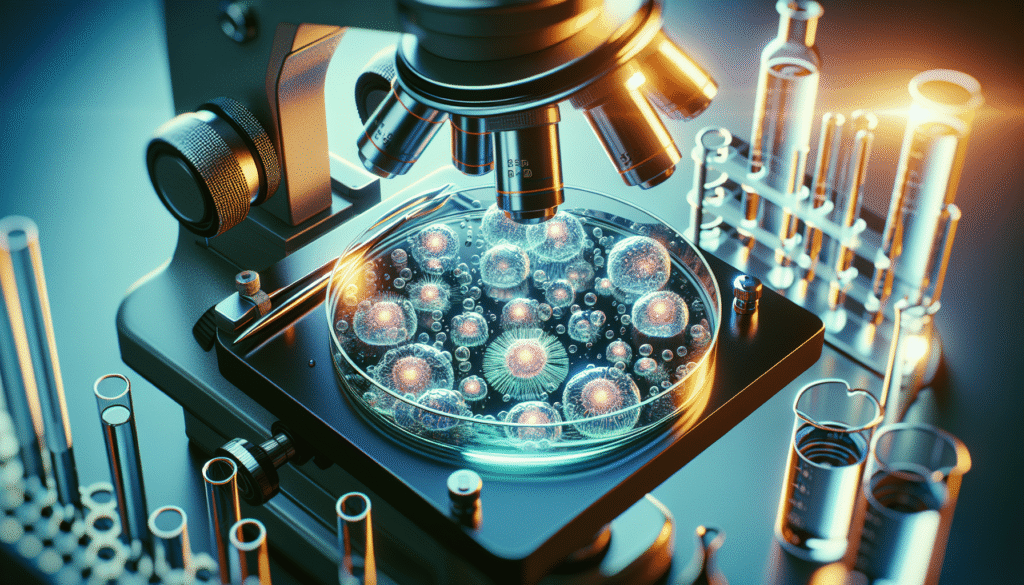
What if your body had a way of cleaning itself, repairing damage, and rejuvenating your cells? It sounds like something out of a sci-fi movie, but that’s essentially what autophagy does. And when you throw methylene blue (MB) into the mix, things get even more intriguing. Let’s chat about what the science says regarding methylene blue and autophagy.
Understanding Autophagy
Autophagy is a natural process that occurs at the cellular level. When your body undergoes autophagy, it’s like your cells are cleaning out the closets. They remove damaged components, proteins, and even whole organelles that might be hindering performance. This process is critical for maintaining cellular health, and it plays a significant role in various diseases and aging.
The Mechanism Behind Autophagy
At the heart of autophagy lies a complex system of cellular machinery. It’s like a well-oiled machine, with several players involved. Here’s how it essentially works:
- Initiation: Your body detects stressors, such as nutrient deprivation or damaged cells.
- Formation of Autophagosomes: Membrane structures form around the damaged materials.
- Fusion with Lysosomes: The autophagosomes merge with lysosomes, which contain enzymes that break down cellular debris.
- Recycling: The byproducts are then recycled for cellular energy or used to build new cellular components.
This process is not just about cleaning. It’s crucial for creating an environment where your cells can thrive.
Benefits of Autophagy
You might wonder, “What’s in it for me?” Here are a few standout benefits of autophagy that you might find compelling:
- Cellular Repair: Your cells can fix themselves, helping you resist diseases.
- Enhanced Longevity: Some studies suggest that autophagy contributes to longer lifespans by preventing age-related diseases.
- Improved Metabolism: It plays a role in fat metabolism, which may help in weight management.
- Homeostasis: It helps maintain a balance in your body’s internal environment, supporting overall health.
Introduction to Methylene Blue
Now, you may be wondering: what is methylene blue, and why should you care? Methylene blue is an ancient dye with a history that dates back to the 19th century. While it was initially used as a textile dye, its medicinal properties have drawn attention, especially in recent years.
Historical Context
Originally used as a treatment for malaria and other various ailments, methylene blue has resurfaced in the wellness and health communities. Recent research has turned the spotlight on its potential benefits, particularly regarding cognitive function and cellular health.
How Methylene Blue Works
Acting primarily as an electron carrier in the mitochondrial electron transport chain, methylene blue can optimize energy production in your cells. If you think of your cells as factories producing energy, MB would be the efficient machine that ensures everything runs smoothly.

Methylene Blue and Autophagy: The Connection
So, how does methylene blue come into play with autophagy? Let’s focus on the exciting intersection of these two concepts.
Enhancing Autophagy
Research suggests that methylene blue may stimulate the autophagy process in various ways. While the exact mechanisms aren’t fully understood, here’s a glimpse of how MB could potentially influence autophagy:
- Mitochondrial Function: By improving mitochondrial efficiency, MB can enhance the overall health of your cells, creating an environment conducive to autophagy.
- Reduction of Oxidative Stress: By minimizing oxidative stress, methylene blue may make it easier for your cells to engage in autophagy.
- Cellular Signaling: Some studies indicate that methylene blue affects specific signaling pathways involved in autophagy, bolstering the process.
To clarify things further, let’s take a look at how methylene blue impacts various aspects of autophagy in a table format.
| Aspect | Methylene Blue’s Impact |
|---|---|
| Mitochondrial Function | Enhances energy production and efficiency |
| Oxidative Stress | Reduces levels of oxidative stress |
| Cellular Signaling | Influences key pathways that regulate autophagy |
| Overall Cell Health | Supports apoptosis, immune response, and regenerative processes |
Research Findings
While the connection between methylene blue and autophagy is promising, it’s essential to consider existing research. Studies have shown mixed results, with various methodologies leading to different outcomes. However, some compelling evidence supports the notion that MB can enhance autophagy under certain conditions.
In one study focusing on neurodegeneration, researchers found that methylene blue improved autophagic processes in neurons. This could have profound implications for individuals dealing with age-related cognitive decline or neurodegenerative disorders.
Similarly, in the context of metabolic diseases, MB’s ability to enhance mitochondrial function may help activate autophagy, influencing body weight and metabolism.
Practical Applications of Methylene Blue and Autophagy
Now that you understand the relationship between methylene blue and autophagy, let’s get practical. How can you leverage this knowledge for your health?
Ways to Incorporate Methylene Blue
If you’re considering incorporating methylene blue into your health routine, keep these tips in mind:
- Consult with a Healthcare Professional: This is absolutely essential before starting any new supplement, including methylene blue.
- Find a Quality Source: Methylene blue is available in various forms. Ensure you buy from reputable vendors to avoid possible contaminants.
- Start Slow: If you opt to take methylene blue, begin with lower doses to see how your body reacts.
Dietary Considerations for Autophagy
You can also influence autophagy through your diet. Here are some foods that may enhance autophagic processes:
- Intermittent Fasting: Taking breaks from eating can stimulate autophagy. It’s like giving your cells a reset.
- Polyphenols: Foods rich in polyphenols, like green tea, blueberries, and dark chocolate, can support autophagy.
- Healthy Fats: Omega-3 fatty acids found in fish like salmon may also encourage autophagy.
Here’s how various foods affect autophagy in a clear table:
| Food | Effect on Autophagy |
|---|---|
| Intermittent Fasting | Stimulates autophagy |
| Green Tea | Contains polyphenols; enhances autophagy |
| Blueberries | Rich in antioxidants; supports cellular repair |
| Omega-3 Fatty Acids | Encourages cellular health |
Measuring Your Results
If you decide to experiment with methylene blue and lifestyle changes aimed at enhancing autophagy, it’s crucial to keep track of your progress. Consider journaling how you feel, both mentally and physically. Note any changes in energy levels, mood, or cognitive clarity.

Possible Concerns and Side Effects
While the benefits of methylene blue and autophagy are compelling, you should also be aware of potential downsides and side effects.
Side Effects of Methylene Blue
Some common side effects associated with methylene blue may include:
- Urine Discoloration: Expect your urine to turn blue or green; this is a harmless side effect.
- Gastrointestinal Distress: Some individuals may experience nausea or stomach discomfort.
- Drug Interactions: Methylene blue can interact with certain medications, notably antidepressants. Always discuss potential interactions with your healthcare provider.
Autophagy: When It Could Go Wrong
In rare cases, excessive autophagy can lead to cellular breakdown rather than repair. Understanding your body and listening to its signals is essential. If you find yourself feeling excessively fatigued or unwell while practicing methods to stimulate autophagy, it might be time to reassess.
The Future of Methylene Blue and Autophagy Research
The relationship between methylene blue and autophagy is still being explored. While the current body of research highlights some promising avenues, the scientific community is cautious. Future studies will undoubtedly peel back more layers of this intricate connection, providing fresh insights into how these processes work together.
What to Look Out For
When keeping an eye on emerging research, consider:
- Clinical Trials: New studies often emerge that investigate the efficacy of methylene blue for various applications, including autophagy.
- Longitudinal Studies: Research that tracks long-term effects and outcomes will help clarify the safety and effectiveness of using MB in conjunction with dietary changes.
- Metabolic Disorders: Emerging studies may present increased evidence on how methylene blue can be beneficial for specific conditions linked to autophagy.
Conclusion: Taking Charge of Your Cellular Health
Understanding methylene blue and its potential to influence autophagy opens up a fascinating dialogue about optimizing health at a cellular level. With the right information and guidance, you can take proactive steps toward enhancing your well-being.
Whether through supplements, dietary changes, or meaningful lifestyle choices, you have the power to influence your body’s natural ability to repair itself. Always approach new health strategies thoughtfully, ensuring you prioritize your safety and well-being.
Take your newfound knowledge, consult with a healthcare professional, and consider the small steps you can take toward a healthier you. The future of your cellular health starts here.